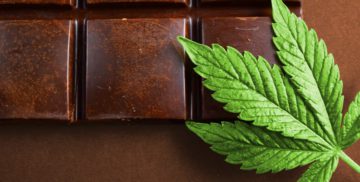More than 2.6 million UK citizens who identify as Muslim must ensure that any object they purchase, be it food, drugs, cosmetics, etc, in CBD oil are halal (permitted) and not consume any object considered haram (not permitted).
Cannabidiol (CBD) the non-psychoactive cannabinoid from the cannabis plant, can now be purchased as a drug, food supplement, and as a cosmetic, but devout Muslims are concerned CBD may be haram due to its origins.
Intoxicating drugs, such as cannabis with a high content of the psychoactive compound Delta-9-Tetrahydrocannabinol (THC) are strictly haram, according to the Muslim Holy book, the Quran.
Full spectrum CBD oil can contain negligible (up to 0.3%) amounts of this active compound THC, so does this mean CBD is haram?
Candid Magazine spoke with Doctor Ali Selim of ‘Islam Ireland’ and ‘Trinity College Dublin’ who said: “Given the negligible quantities of THC, CBD would be halal”.
The Halal Foundation also considers CBD oil to be halal but advises members to “do their own research and see if it [CBD] sits right with them”.
A representative from the ‘Muslim Council of Britain’ told Candid that they believe CBD to be halal, confirming that “It is a plant extract and we don't see any issue with that”, they said.
Islamqa, a popular site for Muslims with pertinent religious questions, believes that CBD is halal, but that it should not be vaped as this would be haram.It appears CBD oil is halal according to scholars of the Islamic faith but it could be mashbooh (questionable) or even haram if taken with certain carriers.
CBD Infused Products
CBD Gummie Bears
CBD in the form of gummy bears would be (for the most part) haram as these sweets are made from gelatine which is a product from pork which is strictly haram.
Those wishing to choose gummy bears should look for natural, non-gelatine gummy bears or gummy bears made from halal approved gelatine, which would be from halal bovine.
CBD wine and alcohol
Alcohol is strictly haram and so CBD-infused drinks are haram.
CBD Capsules
The majority of CBD capsules that contain CBD oil are made from gelatine, either from pig or bovine, the latter would only be permissible if the cattle were reared and slaughtered in a halal manner.
Look for vegetarian capsules from a reputable supplier.
CBD tinctures
CBD is added to a carrier oil such as hemp seed oil, coconut oil, olive oil, grapeseed, all of which would be halal. Be observant of the ingredients to ensure no other non-halal ingredient was added, such as flavourings etc.
CBD Vaping
Vaping is considered haram as vaping “imitates sinners”(smokers) and so according to the Quran, it is haram.
CBD Isolate or Broad Spectrum oil
Some Muslims believe that CBD is haram due to the presence of THC. In that case, you should look for ‘CBD Isolate’ or ‘CBD Broad Spectrum’ which contains 0% THC.
Ensure the supplier you purchase the oil from can supply an independent third-party certificate of analysis, such as Ciitech from the UK.
CBD Oil Halal Certification
Manufacturers of CBD oil such as Cibdol have received certification from ‘Halal International Control’ confirming their products are officially halal.
CBD Extraction
CBD is extracted from the plant in many ways including CO2 extraction, cold pressing, butane gas, and ethanol extraction.
Ensure the CBD oil you purchase, in whatever form, was not extracted using the ethanol method as there may be a trace of ethanol remaining in the oil.
Conclusion
CBD oil is halal according to the majority of Islamic scholars, but it is important to purchase from a reputable, and if possible halal-certified supplier for complete peace of mind.
Strict Muslims who see CBD as being potentially mashbooh should look for ‘CBD Isolate’ or ‘CBD Broad Spectrum’ oil, with third-party analysis reports to ensure there is no trace of THC.
When in doubt. Ask.
Read about halal travel here












